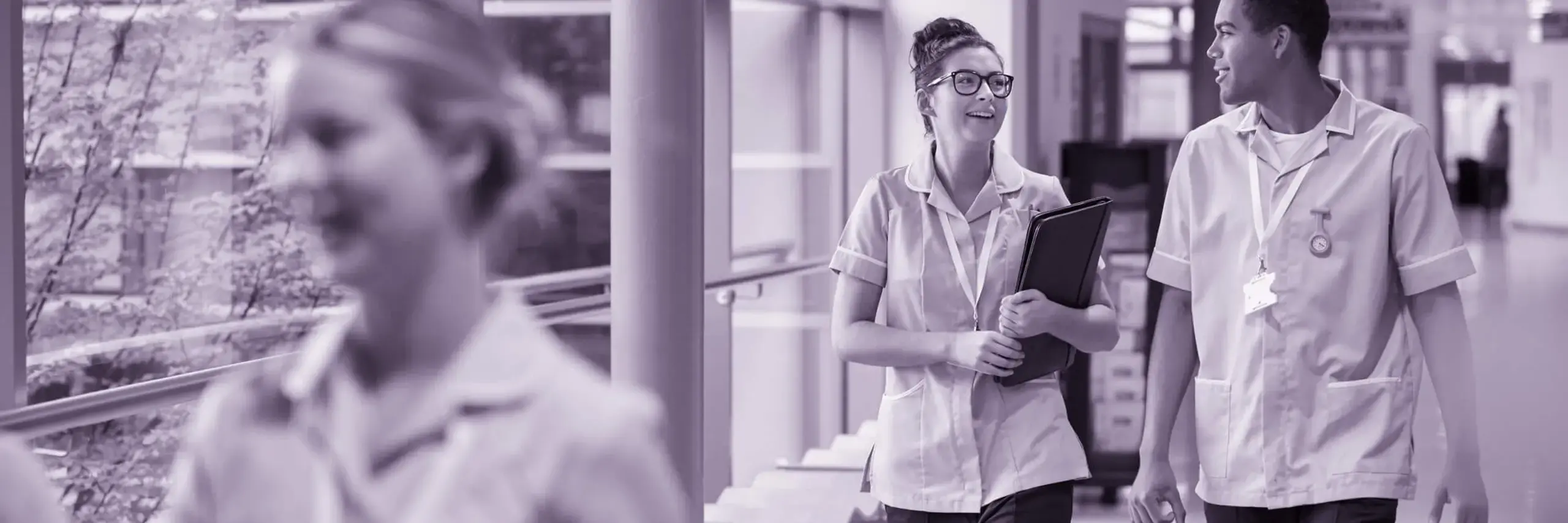Main content
Doctors’ sexual misconduct: a turn in the tide?
01 Sep 2025
Dr Emma Yapp, Senior Research Associate at the University of Bristol, presented at the PSA's annual research conference in 2024, which focused on the experiences of witnesses in fitness to practise proceedings. During this event, Dr Yapp discussed the Powerful Perpetrators project, which examines how UK professional regulators address sexual misconduct perpetrated by their own registrants. Here Dr Yapp and fellow researcher, Allegra Boka-Mawete, explore whether the tide is turning on this issue.
Sexual misconduct perpetrated by doctors is increasingly on the public agenda. This year, France witnessed the conviction of ex-surgeon Joël Le Scouarnec for sexually assaulting 299 children, in what is the nation’s largest child sexual abuse trial to date. This problem is not confined to the abuse of children nor France, with a recent UK survey of the surgical workforce indicating that 30% women and 7% men had been sexually assaulted by a colleague.*
Doctors’ sexual misconduct can understandably have a significant impact on patient safety. For example, “Debbie” was raped by her doctor at age 14 in 1978; he drugged and raped her twice more in the subsequent year. Forty years later, Dr Hoong Pan Sze-Tho pled guilty to sexually assaulting Debbie and another patient, but in the time that had elapsed between his crimes and his conviction, Debbie had harboured an understandable fear of doctors, and had therefore avoided consultations while pregnant. After Sze-Tho was criminally convicted, Debbie publicly testified to the devastating effects of this avoidance of medical care: “I lost three of my boys because of that, because I went into labour early and was rushed to hospital and didn’t have a doctor.”**
Even where doctors’ sexual misconduct is directed towards colleagues, this can have important ramifications for patient safety. Perhaps most significantly, proactively responding to claims of doctor’s sexual misconduct, and regulating this behaviour effectively, is essential to promote and maintain public confidence in the medical profession as set out in the Medical Act of 1983. So, what can be done to meaningfully address this problem, and to protect future patients from harm?
New Sexual Misconduct Training for Doctors
Important steps are being made to address doctors’ sexual misconduct in the UK, starting with the training of the doctors themselves. On the 28th November 2024, a month after NHS England’s announcement of its first ever comprehensive sexual misconduct policy framework, the UK Foundation Programme Office (UKFPO) held an online sexual misconduct training webinar for foundation doctors.
Allegra Boka-Mawete – co-author of this blog, and an intern on the Powerful Perpetrators project – explored the contents of this webinar, and was particularly compelled by one of the speakers: Orthopaedic Hand & Wrist Surgeon Dr Simon Fleming. Dr Fleming is a staunch advocate for those who experience sexual misconduct in healthcare, and his contributions to the webinar evidence how such behaviour is “normalised” [20:02] in the NHS. He recounts two important examples. First, he recalls being approached by someone working in a London hospital, who told him that, “We have a surgeon who plays with the breasts and nipples of asleep women” [19:33]. This had led to female surgeons taping down sedated women’s nipples, and encouraging new members of staff to do the same, to protect the patients from harm. Second, he remembers asking why one of the consultants in a unit was not allowed medical students or registrars: “He’s got a propensity for young blondes, but so long as we keep him away from the students and junior doctors, it’s all fine” [39:53].
These two examples make for difficult reading, but they importantly expose another difficulty: how hard it is to report sexual misconduct. People working in the context of doctors’ sexual misconduct often do not know how or who to report it to, nor trust their employer to respond appropriately. In both of the cases that Dr Fleming describes, colleagues are attempting to find ways to work around doctors’ sexually harmful behaviours, perhaps feeling as though formal reporting processes were not a viable option.
Next steps?
However, the very existence and implementation of sexual misconduct training and policies do mark positive steps towards better addressing doctors’ sexual misconduct, and a potential shift in the culture. Another key point that Dr Fleming makes concerns the importance of having these conversations at the organisational level, and of listening to accounts of sexual misconduct when they are reported.
These conversations are beginning to be more emphatically encouraged within healthcare. For example, the PSA themselves have been running a webinar series on the topic of sexual misconduct since Autumn 2024, with recent sessions exploring topics such as harassment between colleagues, survivor-informed approaches, and regulatory responses. Earlier webinars also explored witness experiences in fitness to practise cases and sexual harassment in medicine. Three events will be taking place in September 2025. The first is on the 4 September concerning sexual misconduct in dentistry; the second is on 8 September, which is about how to prevent and respond to sexual misconduct as healthcare organisations; and the third webinar is on 29 September, to be delivered by researcher-survivor Joni Browne, who has established the initiative 'Opening Up', which aims to prevent sexual abuse by healthcare professionals.
These latter two events are then explicitly about organisational transformation, particularly in terms of: listening to, and learning from, survivors of doctors’ sexual misconduct.
Rather than sexual misconduct being 'normalised' within NHS organisations, as Dr Fleming suggests, we believe that events such as this may go some way to normalise the reporting of sexual misconduct instead, and to encourage individuals within healthcare organisations to listen and respond appropriately. We therefore encourage all of our readers to register to attend.
Find out more about the webinar seriesReferences
*Begeny CT, Arshad H, Cuming T, Dhariwal DK, Fisher RA, Franklin MD, et al. Sexual harassment, sexual assault and rape by colleagues in the surgical workforce, and how women and men are living different realities: observational study using NHS population-derived weights. Br J Surg. 2023 Sep 12;110(11):1518–26.
**Millbank J. Restoration to practice of health practitioners removed for serious sexual misconduct: evaluating public confidence and assessing risk. Griffith Law Review. 2022 Jan 2;31(1):123–50.
Links to other sources are embbeded in the text but for reference, they are:
Gozzi L. BBC News. 2025 [cited 2025 Jul 24]. French paedophile surgeon who abused hundreds sentenced to 20 years in jail. Available from: https://www.bbc.com/news/articles/cvgdkyge198o
Cox B, Jewitt C, MacIver E. Surviving healthcare: sexism and sexual violence in the healthcare workforce [Internet]. Surviving in Scrubs; 2023 p. 38. Available from: https://www.survivinginscrubs.co.uk/app/uploads/2023/11/Surviving-in-Scrubs-Surviving-Healthcare-Report.pdf
The Medical Act. 1983 s1. Available from: https://www.legislation.gov.uk/ukpga/1983/54/section/1
England NHS. NHS England » NHS England sexual misconduct policy [Internet]. 2024 [cited 2025 Jul 24]. Available from: https://www.england.nhs.uk/long-read/sexual-misconduct-policy/
E&S Webinar - Sexual safety and professionalism in the NHS - an introduction for foundation doctors [Internet]. 2024 [cited 2025 Jul 24]. Available from: https://www.youtube.com/watch?v=L4nOiHkMsgY
Disclaimer
This is a guest blog. Guest authors bring different perspectives and diverse voices. However, they do not always represent the views of the PSA.




